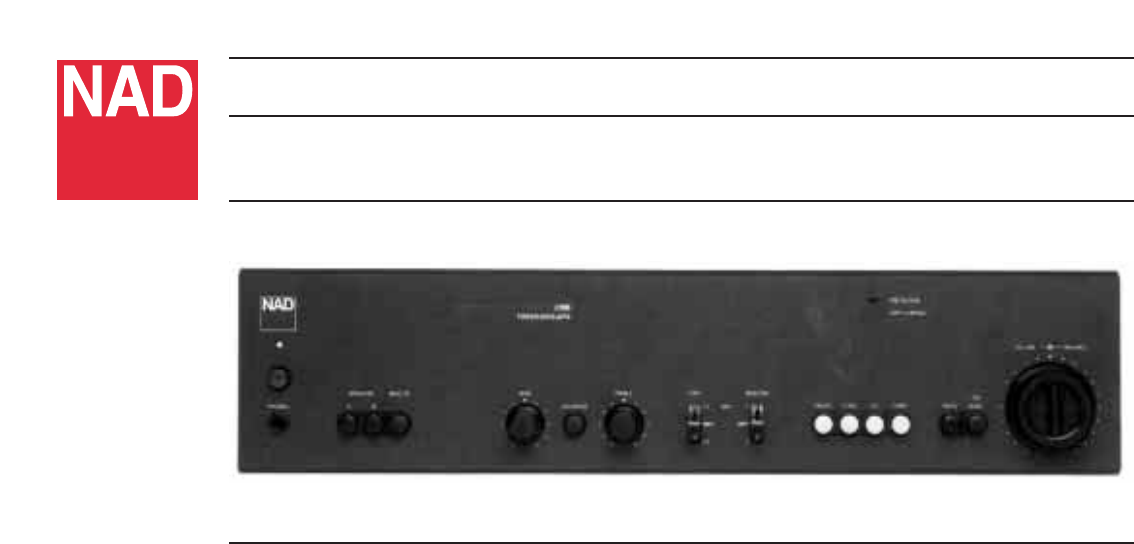
3100
Integrated Amplifier
Date of manufacture : ?
Please note that this document contains the text from the original product brochure, and some technical statements may now be out of date
For most manufacturers, the highest quality parts and most highly refined designs are used only in
separate audio components-in preamplifiers, power amplifiers, and tuners. Integrated amplifiers are
usually made to a less exalted standard, while all-in-one stereo receivers are regarded as compromise
products suitable only for casual listeners. But not at NAD. NAD electronics are designed in modular
form, and many of the same circuits are used in all product categories. The 3100 Integrated Amplifier,
for example, combines NAD’s robust 2100 Power Amplifier with high-quality preamplifier circuitry
derived from some of NAD’s finest preamplifiers. The pre- and power amplifier sections of the 3100 are
joined by removable external jumpers that allow you to insert external processors such as a surround-
sound unit or an electronic crossover for bi-amping in the signal path.
The power amplifier section of the 3100 employs all of the NAD innovations described on pages 4 and
5. Like the 2100 Power Amplifier, it is conservatively rated at 50 watts/ channel for sine-wave test tones,
while its Power Envelope circuit produces 200 to 330 watts channel of long-term tone-burst power for
the dynamic waveforms of music. Its high-current output stage, impedance selector, and heavy-duty
speaker terminals are designed to deliver maximum power to loudspeakers of any impedance. The
preamplifier section of the 3100 contains the same low-noise MM/MC phono stage as the 1700
Preamplifier/ Tuner and the same switchable Infrasonic Filter, flexible two-way tape connections, Bass
EQ, and ultra-quiet feedback-operated volume control as NAD’s state-of-the-art 1300 Preamplifier.
The tone controls are Baxandall bass and treble circuits, but with their parameters carefully selected to
allow substantial adjustments at low and high frequencies without altering the neutrality of the
midrange.




